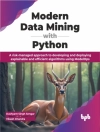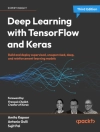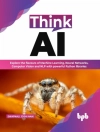The all pervasive web is influencing all aspects of human endeavour. In order to strengthen the description of web resources, so that they are more meaningful to both humans and machines, web semantics have been proposed. These allow better annotation, understanding, search, interpretation and composition of these – sources. The growing importance of these has brought about a great increase in research into these issues. We propose a series of books that will address key issues in web semantics on an annual basis. This book series can be considered as an extended journal published annually. The series will combine theoretical results, standards, and their realizations in applications and implementations. The series is titled “Advances in Web Sem- tics” and will be published periodically by Springer to promote emerging Semantic Web technologies. It will contain the cream of the collective contribution of the Int- national Federation for Information Processing (IFIP) Web Semantics Working Group; WG 2. 12 & WG 12. 4. This book, addressing the current state of the art, is the first in the series. In subsequent years, books will address a particular theme, topic or issue where the greatest advances are being made. Examples of such topics include: (i) process semantics, (ii) web services, (iii) ontologies, (iv) workflows, (v) trust and reputation, (vi) web applications, etc. Periodically, perhaps every five years, there will be a scene-setting state of the art volume.
قائمة المحتويات
1: Ontologies and Knowledge Sharing.- Ontology Engineering – The DOGMA Approach.- Process Mining towards Semantics.- Models of Interaction as a Grounding for Peer to Peer Knowledge Sharing.- Extraction Process Specification for Materialized Ontology Views.- Advances in Ontology Matching.- Multi-site Software Engineering Ontology Instantiations Management Using Reputation Based Decision Making.- 2: Applied Semantic Web.- Representing and Validating Digital Business Processes.- Towards Automated Privacy Compliance in the Information Life Cycle.- Web Semantics for Intelligent and Dynamic Information Retrieval Illustrated within the Mental Health Domain.- Ontologies for Production Automation.- Determining the Failure Level for Risk Analysis in an e-Commerce Interaction.- 3: Web Services.- Process Mediation of OWL-S Web Services.- Latent Semantic Analysis – The Dynamics of Semantics Web Services Discovery.- Semantic Web Services for Satisfying SOA Requirements.












